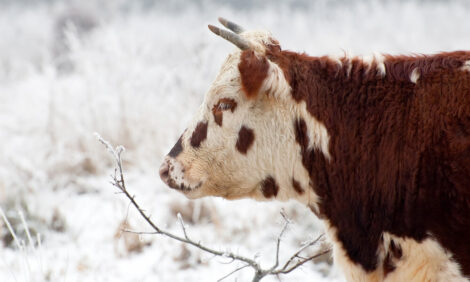



EU And Defra Fail To Support British Farmers
UK - In its latest report on the Common Agricultural Policy (CAP) after 2013 the Environment, Food and Rural Affairs (EFRA) Committee slams the European Commission's proposed sweeping reforms of the CAP that would see the current complex and bureaucratic system of direct payments replaced by one that could be even worse.The EU wants to slap farmers with more regulation rather than provide the incentives to secure a sustainable and profitable EU agricultural sector, say MPs.
These changes include a new tier of environmental conditions, with penalties for farm businesses that do not comply or fail to meet new criteria for 'active' farmers, farm size and number of employees.
Launching a report reviewing the options proposed by the European Commission for reform of the Common Agricultural Policy, Anne McIntosh MP, EFRA Committee Chair says: "Farmers are seeing their incomes fall while hard-pressed families have to swallow rising food prices. Neither the EU nor DEFRA have faced up to these twin challenges."
In its report the EFRA committee sets out the key principles the UK government should promote and the elements the Department for Food and Rural Affairs (DEFRA) must secure in its negotiations for reform of the CAP after 2013.
The first objective of the CAP should be to maintain and enhance the EU's capacity to produce food with a significant degree of self sufficiency and, in the long term, less reliance on income support from the tax payer, said the Committee.
More than half of UK farm businesses would be unprofitable without the support they receive through the CAP; for example livestock production in the uplands, however DEFRA believes direct payments should be phased out.
Anne McIntosh says: "While we broadly support the government's desire to reduce reliance on subsidies, we do not believe that cuts to direct payments are the best way to achieve this.
"Ministers need to set out exactly how UK farmers will become self-supporting, against a backdrop of rising fuel, fertiliser and feed prices and in the face of greater competition from third countries that do not operate to EU standards of environmental protection or animal welfare."
The Committee backs calls for a sustainable future, however believes that every EU farmers should face the same environmental requirements.
Regarding animal welfare the Committee says: "When consumers buy cheap food imports produced to lower standards, the EU is effectively exporting the adverse environmental impacts. The CAP pays for the more exacting standards of welfare and environmental protection that consumers demand. This is not sustainable in the long term."
To address this problem the committee concludes that the UK should press for the EU to argue more strongly for recognition of environmental and animal welfare production standards within trade agreements.
Concluding EFRA says that the EU's reform was progressing rapidly, but warns that DEFRA does still not have a coherent and effective negotiating position for CAP reform.
Likewise, if the UK Government wants to influence the direction of negotiations it will need friends and allies across Europe. With that in mind it is breathtaking that DEFRA also failed to agree the collective position adopted recently by the EU Council of Agricultural Ministers," says Anne McIntosh.
Further Reading
| - | You can view the full report by clicking here. |
TheCattleSite News Desk


